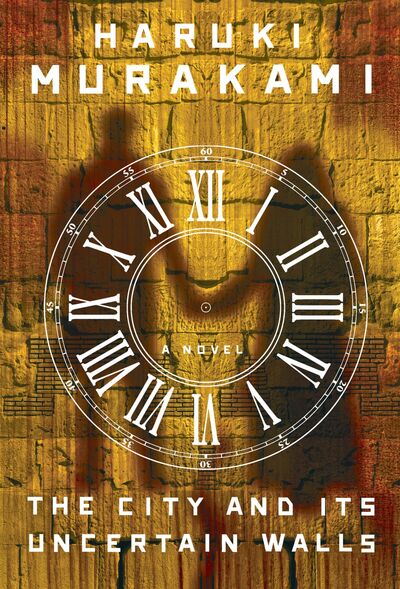Only Sixteen
The City and Its Uncertain Walls
By Haruki Murakami

19 Feb, 2025
Haruki Murakami’s 2023 The City and Its Uncertain Walls is a surrealistic novel1. The 2024 translation is by Philip Gabriel.
Ah, young love. How could it possibly go wrong?
The seventeen-year-old boy loves his sixteen-year-old girlfriend and she loves him. It’s inconvenient that they live in different towns, but separation only makes their meetings sweeter. The couple enjoy a perfect summer.
Summers end. So do romances. The couple has their final assignation. All that remains for the man who was once a boy is to spend his life remembering a romance against which all others pale, to endure a gray, joyless existence forever defined by loss.
Together, the couple imagined a fantastic city in great detail. Years later the man who was once a boy finds himself in the timeless dream town. There he finds his lost love… except not only is the girl still a girl, she has no memory of the man who was once a boy, either as a man or as a boy.
Life in the unchanging town isn’t really a viable choice, even ignoring the many curious and alarming qualities of the imaginary community. However, returning to the mundane world and life as a salaryman also proves unsatisfactory. Are there choices other than disquieting dream world or disappointing reality? And does the man who was a boy have it within him to embrace those choices?
~oOo~
It’s interesting to watch reviewers struggle with books whose protagonists have no obvious name. At least, I hope it is.
The above does not really do the book justice. Also, here the border between fantastic and mundane is far more blurred than my description suggests. Even in commonplace Japan, one may well find oneself conversing with the dead.
Some readers may ask with increasing alarm if this book might be literature. I regret to say that Walls almost certainly is literature, with all that implies. What’s up with reality matters far less than the lessons the protagonist and the reader take away with them.
What might one learn? Well, that sometimes we have something and then we don’t have that something and not having that something makes us sad. But we need to learn that focusing on one thing in particular, even something that was precious that we then lost, can blind you to everything else. You could end up fixated on a long-lost flower while standing in a field of daises. Great, if your intention is to maximize melancholy, but you will end up having had a much less satisfactory life than one might have had, and you won’t have done much for the people around you.
Sometimes it’s nice to read something other than breakneck adventure. Walls is very much not a breakneck adventure. It’s more of a leisurely stroll undertaken for intensely personal reasons without a particular destination in mind. Very leisurely; the paperback is over seven hundred pages long.
Long books often present a time-management issue for me, but not in this case. While it certainly helped that to look up from the page is to see a world on fire, I never wanted to look up. I was perfectly happy to follow the protagonist on his journey.
The City and Its Uncertain Walls is available here (Knopf Doubleday Publishing Group), here (Barnes & Noble), here (Bookshop US), here (Bookshop UK), here (Chapters-Indigo), and here (Words Worth Books).
1: This is an expanded version of an older, much shorter work, which the author worked on during Covid. This suggests that we could greatly increase the supply of noteworthy novels simply by subjecting every author to solitary confinement. Oddly, it turns out not only does that not work, especially if you forget to feed the authors, it’s highly illegal for private citizens to do so.
